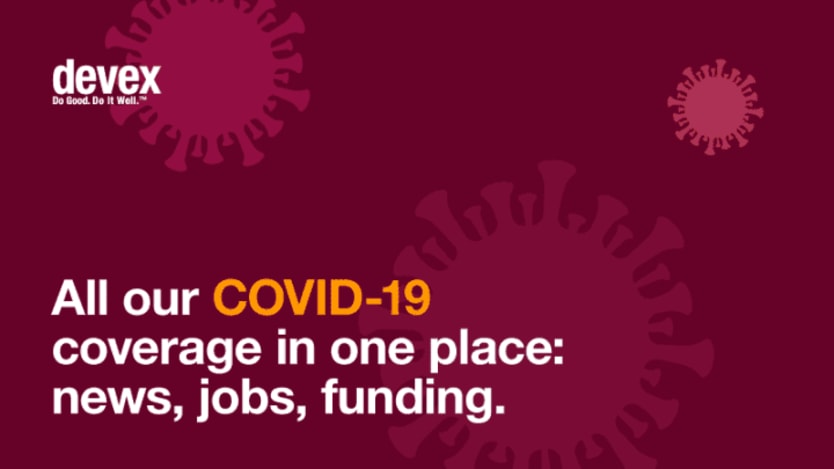
With the European Commission still under fire for the slow rate of COVID-19 vaccinations at home, its head of development policy told the European Parliament on Thursday that it’s in the bloc’s own interest to help inoculate the rest of the world as well.
“Developing and distributing vaccines against COVID-19 globally is our exit strategy from the pandemic,” Jutta Urpilainen, commissioner for international partnerships, told members of European Parliament. “We are fully committed to people all over the world having access to a vaccine.”
The former Finnish finance minister outlined the “parallel tracks” her team has pursued in response to the coronavirus, including rejiggering the remainder of its 2014-2020 development budget and fundraising for vaccine research.
Urpilainen also highlighted the €850 million contribution from the commission and European Union member states to COVAX, the global initiative set up to ensure equitable access to vaccines, which announced its first detailed forecast Wednesday of when low-income countries can expect to start receiving doses.
However, there are doubts over whether COVAX will work, with concerns ranging from funding, supply, and regulatory approval to whether countries will be ready to roll out vaccines.
“Developing and distributing vaccines against COVID-19 globally is our exit strategy from the pandemic.”
— Jutta Urpilainen, commissioner for international partnerships, European Commission“I don’t want to put water in the wine, but COVAX has not really been a success yet,” Hildegard Bentele, a center-right German MEP, told Urpilainen at Thursday’s committee hearing, pointing out that the African Union has begun buying its own vaccines.
Urpilainen responded that she still saw more cooperation than competition and emphasized that the commission still views COVAX as its “main tool” to support low-income countries.
“We need to be able to communicate better what this COVAX is doing, how it is functioning, and what we are able to deliver also through that instrument,” Urpilainen said.
The EU’s 2021-2027 development budget was another chance to scale up local manufacturing and production capacity of vaccines in Africa, Urpilainen said, noting the European Investment Bank is already working on this.
In recent weeks, the commission has also floated the idea of a new “vaccine-sharing mechanism” to allow EU countries to donate doses to health workers and others in low-income countries.
Urpilainen said Thursday that the mechanism would take place “hopefully through COVAX,” though details remain scarce. COVAX did not respond to a request for comment Thursday on how the mooted EU mechanism would work. And EU officials admit privately that the politics of asking national governments to send shots abroad while their own citizens are still waiting to be vaccinated can be tricky.
After the commission took longer to sign contracts with pharmaceutical companies, and with member states handling distribution, EU nations are lagging behind the United Kingdom in the rollout of vaccinations, heaping pressure on commission President Ursula von der Leyen.
As far-right German MEP Bernhard Zimniok put it to Urpilainen Thursday: “You have failed in Europe, and you are trying to save the rest of the world. Well, wonderful. But let’s start in Europe first, let’s get the vaccines.”

Search for articles
Most Read
- 1
- 2
- 3
- 4
- 5








